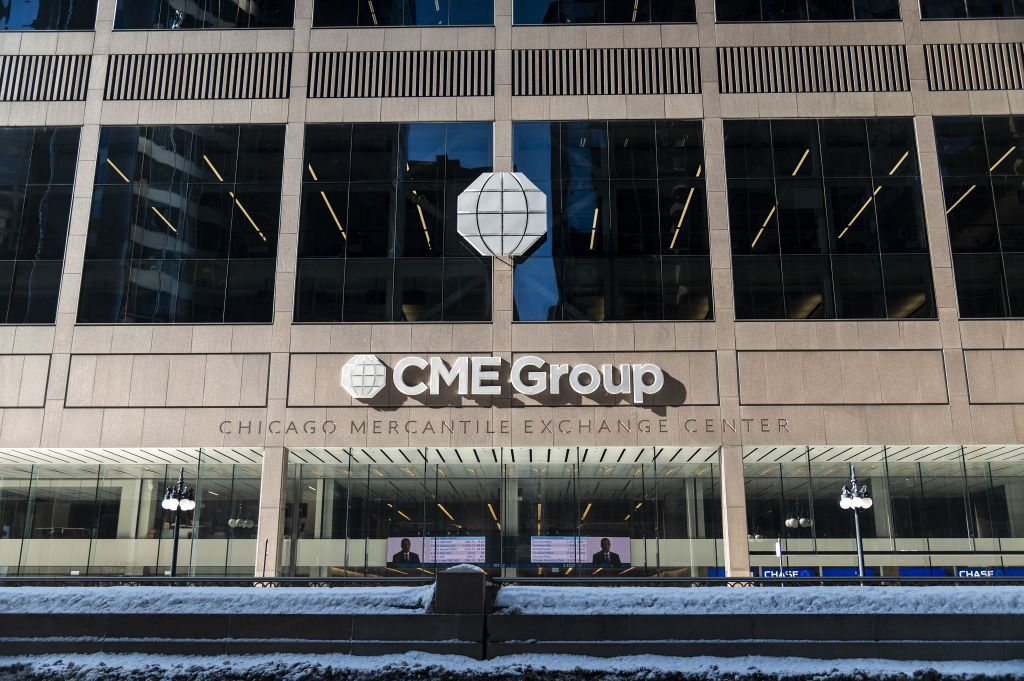Trading: cruise operator Carnival will party again – here's how to play it
Cruise ship operator Carnival shares are cheap and look poised to recover strongly. Matthew Partridge explains how to play it.


Get the latest financial news, insights and expert analysis from our award-winning MoneyWeek team, to help you understand what really matters when it comes to your finances.
You are now subscribed
Your newsletter sign-up was successful
Want to add more newsletters?

Twice daily
MoneyWeek
Get the latest financial news, insights and expert analysis from our award-winning MoneyWeek team, to help you understand what really matters when it comes to your finances.

Four times a week
Look After My Bills
Sign up to our free money-saving newsletter, filled with the latest news and expert advice to help you find the best tips and deals for managing your bills. Start saving today!
The first time that Covid-19 really came to people’s attention was when the Diamond Princess cruise ship was quarantined in early February after an outbreak that infected 714 people and killed 14. By March most countries, including the US, had either banned or heavily restricted cruise ships.
So it’s no surprise that at one stage in early April shares in Carnival Corporation (NYSE: CCL) had fallen by 80% from their price at the start of the year. Even though they subsequently rallied, doubling over the last five months, they are still over 60% down from their 52-week high at a time when the benchmark S&P 500 continues to make new highs.
The clouds are clearing
Still, there are several reasons to be bullish on Carnival. Loosening restrictions in several countries mean that it has resumed some limited cruises, beginning with a journey around Italian ports earlier this month by its subsidiary Costa Cruises. Carnival’s management hopes that this loosening will continue as more countries become more confident that the virus can be contained through testing and social distancing. While it is almost certain that the US ban on cruise ships will be extended for at least another month when it expires in a fortnight’s time, the cruise lines, including Carnival, are aggressively pushing for a limited re-opening in November.
MoneyWeek
Subscribe to MoneyWeek today and get your first six magazine issues absolutely FREE

Sign up to Money Morning
Don't miss the latest investment and personal finances news, market analysis, plus money-saving tips with our free twice-daily newsletter
Don't miss the latest investment and personal finances news, market analysis, plus money-saving tips with our free twice-daily newsletter
Moreover, with nine vaccine candidates in final-stage trials, at least one could be approved by the end of the year, which, allowing time for production and rollout, means that most restrictions could be lifted by next summer. While there’s always the worry that the crisis has permanently reduced people’s appetite for sailing around the world, this doesn’t seem to be the case, with companies reporting a few months ago that bookings for 2021 were at similar levels to past years. Magazine surveys also suggest that most people have not been deterred from going on a cruise by this year’s chaos.
Even if business does take a little longer to bounce back than expected, Carnival has plenty of financial leeway because it has been able to raise $12bn to bolster its balance sheet. The valuation also looks very attractive with the company trading at just four times 2019 earnings and a 25% discount to the value of its net assets, despite the fact that between 2015 and 2019 it grew sales by a third. What’s more, in 2016, 2017, 2018 and 2019 it earned a double-digit return on capital invested (a key gauge of profitability), showing that it deployed its resources efficiently.
I therefore suggest that you go long on Carnival at the current price of $16.50 at £200 per $1. Cover your position if it falls below $10. This is a slightly looser stop-loss than normal because of the stock’s volatility; it gives you a potential downside of £1,300.
How my tips have fared
My four long tips have struggled during the past fortnight, with one increasing, one staying the same and two falling. Media group ITV rose from 58p to 65p. Equipment firm United Rentals stayed at $177.
However, energy company Royal Dutch Shell fell from 1,086p to 1,078p. Worst of all, thanks to its decision to offer a rights issue at an unexpectedly low price, airline company International Consolidated Airlines Group (IAG) fell from 206p to 135p. While the stop-losses meant that the position was closed at 140p, this still represents a loss of £990.
My short tips haven’t done particularly well either. Online insurance broker eHealth went up from $63 to $75, while exercise bike manufacturer Peloton appreciated from $76 to $81.
At least electric lorry maker Nikola fell from $40 to $35, despite at one stage surging to $50 after announcing a production deal with General Motors.
Online education provider GSX Techedu climbed from $85 to $91, although since I suggested that you wait until it falls below $70 before shorting it, this shouldn’t have any impact on the overall profits and losses.
Counting the losses on IAG, my long tips are making a net profit of £543, while my short tips are making profits of £867.
The upshot is an overall profit of £1,410, though the sum is exceeded by my losses on closed positions.
I now have four long tips (Carnival, Royal Dutch Shell, United Rentals and ITV) and three short tips (eHealth, Pelton and Nikola).
With the Royal Dutch Shell tip set to reach its six- month anniversary in a week’s time, I am very likely to close it next time unless something dramatic happens to turn its fortunes (and share price) around.
Trading techniques: stocks and rights issues
The turmoil caused by the pandemic has prompted many companies to raise more money. While some have borrowed, or sought help from the government, others, notably International Consolidated Airlines Group (IAG), the owner of British Airways, has launched rights issues.
This means that a company sells additional shares to existing shareholders at a discount. In essence, a rights issue is the opposite of a share buyback (whereby a firm buys its own shares, reducing the number of shares that are outstanding).
In theory rights issues should be neutral for the share price provided companies can use the cash raised efficiently. Even if this is not the case, they could still be a sensible move if the only other options are either bankruptcy (which would see existing shareholders wiped out) or taking money on less advantageous terms. A government bailout, for instance, could come with considerable interference in operational decisions. However, in reality they are almost always seen as a sign of weakness or desperation. Studies in both the US and UK suggest that rights issues do indeed have a negative effect on short-term share prices.
For example, a 2000 study by Myron Slovin and Marie Suska of Arizona State University, and K.W. Lai of Lingnan University, found that between 1986 and 1994, the shares of UK companies involved in rights issues fell by an average of 1.8% over the two days after the rights issue was announced.
B. Espen Eckbo of Dartmouth and Ronald W. Masulis of Vanderbilt estimated in 1995 that the average two-day impact in the US was even higher, at around
Get the latest financial news, insights and expert analysis from our award-winning MoneyWeek team, to help you understand what really matters when it comes to your finances.

-
 How a ‘great view’ from your home can boost its value by 35%
How a ‘great view’ from your home can boost its value by 35%A house that comes with a picturesque backdrop could add tens of thousands of pounds to its asking price – but how does each region compare?
-
 What is a care fees annuity and how much does it cost?
What is a care fees annuity and how much does it cost?How we will be cared for in our later years – and how much we are willing to pay for it – are conversations best had as early as possible. One option to cover the cost is a care fees annuity. We look at the pros and cons.
-
 Should you sell your Affirm stock?
Should you sell your Affirm stock?Affirm, a buy-now-pay-later lender, is vulnerable to a downturn. Investors are losing their enthusiasm, says Matthew Partridge
-
 Profit from pest control with Rentokil Initial
Profit from pest control with Rentokil InitialRentokil Initial is set for global expansion and offers strong sales growth
-
 In the money: how my trading tips fared in 2025
In the money: how my trading tips fared in 2025The success of the open positions offset losses on closed ones, says Matthew Partridge
-
 Coreweave is on borrowed time
Coreweave is on borrowed timeAI infrastructure firm Coreweave is heading for trouble and is absurdly pricey, says Matthew Partridge
-
 Circle sets a new gold standard for cryptocurrencies
Circle sets a new gold standard for cryptocurrenciesCryptocurrencies have existed in a kind of financial Wild West. No longer – they are entering the mainstream, and US-listed Circle is ideally placed to benefit
-
 Profit from other investors’ trades with CME Group
Profit from other investors’ trades with CME GroupCME Group is one of the world’s largest exchanges, which gives it a significant competitive advantage
-
 Investors need to get ready for an age of uncertainty and upheaval
Investors need to get ready for an age of uncertainty and upheavalTectonic geopolitical and economic shifts are underway. Investors need to consider a range of tools when positioning portfolios to accommodate these changes
-
 How much gold does China have – and how to cash in
How much gold does China have – and how to cash inChina's gold reserves are vastly understated, says Dominic Frisby. So hold gold, overbought or not